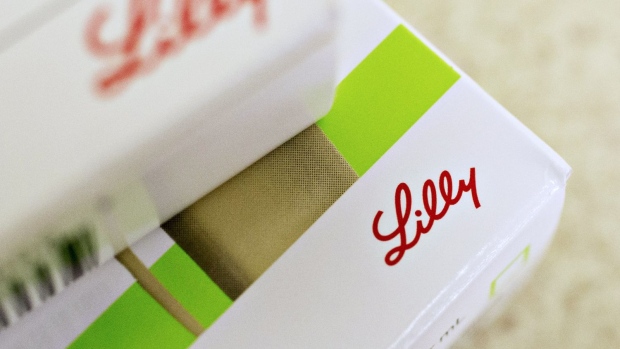Nov 9, 2020
Eli Lilly Covid Antibody Drug Gets Emergency FDA Clearance
, Bloomberg News

(Bloomberg) -- Eli Lilly & Co.’s antibody therapy was granted an emergency-use authorization by U.S. drug regulators for treating Covid-19, widening access to a treatment that early data suggests is effective in keeping people infected with the coronavirus out of the hospital.
The Food and Drug Administration authorized the treatment, called bamlanivimab, for use against mild-to-moderate Covid-19 in adult and pediatric patients, the agency said on its website.
Shares of Eli Lilly gained 4.5% in late trading on Monday. Through the close, the stock had advanced 8.3% so far this year.
The clearance gives doctors an option for tackling the virus in high-risk patients before they’re sick enough to require hospitalization. Other treatments that received the regulatory go-ahead, such as convalescent plasma, a component collected from the blood of recovered Covid patients containing immune factors, and Gilead Sciences Inc.’s antiviral remdesivir are intended for use in severely ill Covid-19 patients.
Experimental antibody treatments could become a powerful component of the arsenal that doctors use to treat the coronavirus. Anthony Fauci, the top U.S. infectious-disease official, has referred to antibody-based medicines as a bridge to a vaccine.
The therapies also are being studied as short-term treatments that could be given to people such as nursing-home residents or staff who may have been exposed during a local outbreak to prevent them from getting sick.
Lilly approached the FDA for authorization of the single-antibody treatment it’s developing with Canadian biotech AbCellera Biologics Inc. last month.
Lilly and closely held AbCellera’s monotherapy antibody treatment reduced the rate at which symptomatic patients were hospitalized or sent to emergency rooms compared with a placebo, according to interim study results released by the company in September. Trial results published in the New England Journal of Medicine showed the therapy reduced patients’ viral load at the middle of the three doses studied.
The U.S. government agreed to pay Lilly $375 million for 300,000 vials of the antibody treatment, contingent on an emergency-use authorization. The initial agreement is for delivery over the first two months following a regulatory green light. The U.S. also has the option to purchase an additional 650,000 vials through next June for as much as $812.5 million.
Lilly is also studying a cocktail of two antibodies. The company expects to approach regulators for authorization in November and seek full approval in the second quarter of 2021. Early results from a trial showed the combination reduced virus levels in patients with mild to moderate Covid-19 and cut the rate of hospitalizations and emergency room visits.
The drugmaker has a manufacturing partnership with Amgen Inc., and plans to pursue more collaboration pacts, according to Chief Executive Officer David Ricks.
Infectious disease experts say antibody drugs are most likely to be useful if they are given early on in the course of infection. That idea was bolstered on Oct. 26, when a government-sponsored trial of the Lilly antibody in hospitalized patients—who tend to be sicker—was terminated due to lack of efficacy.
Other companies testing antibody treatments include Regeneron Pharmaceuticals Inc., AstraZeneca Plc and GlaxoSmithKline Plc and its partner Vir Biotechnology Inc.,
(Updates with share-price information in third paragraph)
©2020 Bloomberg L.P.